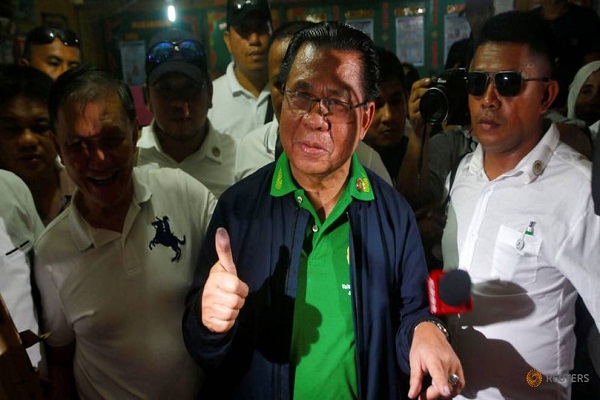Philippine voters back new Muslim autonomous region
Voters in the Philippines’ conflict-ridden southern islands have overwhelmingly backed the creation of a new Muslim region with greater autonomy from the national government. In a referendum on Monday, 98% of voters in two provinces that together account for 40% of the electorate backed the establishment of the Bangsamoro Autonomous Region in Muslim Mindanao. A […]

Voters in the Philippines’ conflict-ridden southern islands have overwhelmingly backed the creation of a new Muslim region with greater autonomy from the national government.
In a referendum on Monday, 98% of voters in two provinces that together account for 40% of the electorate backed the establishment of the Bangsamoro Autonomous Region in Muslim Mindanao. A partial count released by the election commission shows that two of the three remaining provinces have voted for inclusion in the new region.
The outcome of the vote in Isabela City, which may be included in the expanded territory, remains in question following allegations of fraud. A separate plebiscite for adjacent towns and villages is scheduled for Feb. 6.
The Bangsamoro region is the product of a peace agreement between the Philippine government and the Moro Islamic Liberation Front, a rebel group that has long sought self-rule. Decades of conflict have claimed around 100,000 lives, displaced millions and left large areas impoverished.
The election commission in Manila is expected to ratify the Bangsamoro law on Friday. The legislation will grant more than 50 exclusive powers to the region, including a Sharia-based justice system and Islamic financing.
While the front is preparing to head the region’s government, a caretaker administration will take charge until President Rodrigo Duterte appoints a transition team.
Al Haj Murad Ebrahim, the front’s chairman, is expected to become chief minister when the new region is formed in 2022.
“We are looking forward to at least introduce some programmes that will have an immediate impact to the people,” Murad said on Monday, citing education, health, infrastructure and social services as priorities. (Nikkei Asian Review)
